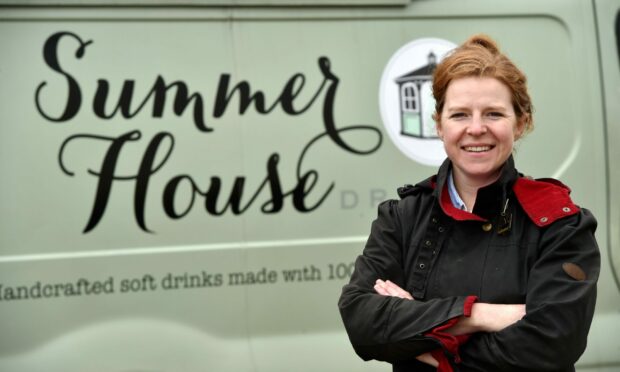With only six months left until the rollout of the controversial deposit return scheme (DRS) calls are being made for the Scottish Government to think again about the plans.
The Federation of Small Businesses (FSB) has reiterated its call for officials to either pause or pare back elements of the scheme saying “confusion reigns”.
From August 16 2023, almost all drinks containers – aluminum, plastic and glass – will have a 20p deposit included in their price.
That amount will be recouped when the bottle is taken to one of thousands of special collection points at supermarkets and other shops around the country but businesses – particularly small drinks producers and sellers – say they face having to spend on “massive” upfront costs without necessary clarity at a time they can little afford it.
Lose, lose situation
For Claire Rennie, owner of softs drink-maker Summer House Drinks, of Peathill, near Fraserburgh, it’s a time of frustration and uncertainty.
She said: “I am preparing for the worst and hoping for the best is where we are at.
“We are getting our business ready to have to deal wit the change of labels we need to do and probably the biggest issue that we have is trying to forecast our cashflow.
“When the scheme goes live in August we’ve got some massive upfront payments to make to Circularity Scotland to cover the deposit so we are trying to basically work that out.
I am preparing for the worst and hoping for the best is where we are at.”
Claire Rennie, owner of Summer House Drinks
“At the same time we are hoping that the government start to listen to small businesses and aim for a simplified scheme that will actually work.
“Hopefully that means taking glass out of the equation. The scheme has been designed for multi-national big supply supermarkets or the really large players who supply supermarkets.
“If that part of the scheme was to go-ahead, which is mainly plastic, it wouldn’t affect us. But keeping the glass in does.
“I feel quite defeated and resigned to the fact that if we want to continue to trade in Scotland we are having to sign up to the Circularity Scotland agreement and most of our trade is in Scotland.
“We either lose money through losing the trade or we lose money through signing up to the scheme.”
Producers, retailers and businesses in the hospitality industry are facing administration costs, required pre-payments of deposits and a £360 registration fee – all before DRS gets under way.
‘Destined to fail’
FSB’s Scotland policy chair Andrew McRae said: “As with many of the new regulatory schemes being introduced by the Scottish Government in the coming months, the DRS is the product of a commendable policy aim – a policy aim that FSB supports.
“Where DRS stumbles is that, in its current form, it is destined to fail and will damage small businesses, who make up the majority of traders in Scotland.
“From independent producers, to small retailers, to importers and exporters, confusion reigns. Promised clarity on, for example, online sales has not materialised. ”
Many small businesses face fears over the impact it will cause.
Businesses ‘running on empty’
Mr McRae added: “We have always encouraged the Scottish Government not to view business as a monolith. Many small businesses are already running on empty after years of crises.
“They lack the dedicated resource to change their labels, redesign their shop floors or renegotiate all of their import and export deals. And simply exempting smaller retailers wouldn’t be a silver bullet – as there would be adverse impacts on footfall.
“Now, as we face significant political changes, it is time to stop and think.
“By reassessing the onus that will be placed on businesses, the architects of DRS have an opportunity to create a scheme which will be successful for businesses and consumers across Scotland.”



Conversation